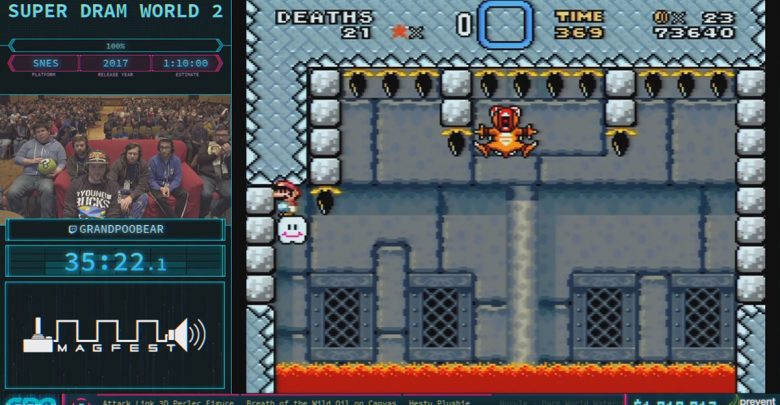 Supplied
SuppliedWhat’s the fastest you’ve ever beaten your favourite video game? A day? A couple of hours? How about just under 5 minutes?
The act of trying to beat a video game as fast as humanly possible is known as “speedrunning.” During a speedrun, players employ glitches, incredibly difficult controller input sequences, and other exploits in order to push a game to its limits. This oftentimes results in runners “breaking” games, resulting in the game being played in a completely different way than the developers intended.
Speedrunners will often stream their runs live on Twitch, practicing for hours and hours to beat their personal bests or go for the world record. The level of play they achieve is astonishing; many become skilled enough to time inputs to a sixtieth of a second. They can cut the play time of games to mere fractions of what they usually take. For example, The Legend of Zelda: Ocarina of Time takes the average player around 20-30 hours to complete. The world record, held by a runner named Torje, sits as 17 minutes.
Other speedrunners don’t touch controllers at all. Instead, they create tool-assisted speedruns (TAS), which use console emulation software to record a perfect set of inputs to be played back in a specific game. This allows for the execution of inputs that humans are physically incapable of performing (inputting left and right at the same time on a control stick, for example), resulting in insane game-breaking glitches and sometimes complete game overhauls.
As a spectator, it’s incredible to see runners completely destroy games you dedicated hours of your life beating. It’s mystifying to see the seams of a game unravel, see what the developers overlooked, how seemingly small exploits can allow one to skip entire hours of a game. It’s insane to see someone turn the math minigame from Brainage into a surreal collection of drawings that somehow still all manage to be the correct answers.
Honestly, speedrunning’s a bit perverse; it’s a truly deconstructive practice, one that exposes a game’s flaws, strips it down to its core mechanics, sometimes even replacing them with entirely new ways to play. They can turn narratively rich games into pure showcases of technical skill or breathe new purpose into incredibly shitty games. In its elimination of everything else but the technical details, speedrunning can give new meaning to these games.
This, I think, is what makes speedrunning cool as fuck. Not just the spectacle of the run, but the transformation of the game being run.




